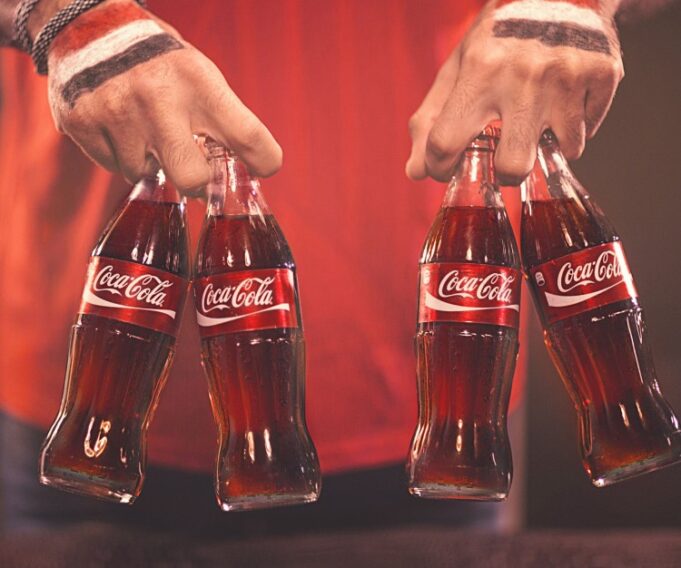Coca-Cola, Danone, and Nestle have been accused of making misleading claims about their plastic water bottles being “100 per cent recycled”.
A consumer body and two environmental groups have issued a legal complaint to the European Commission over the alleged greenwashing.
They argue that the bottles are never made wholly of recycled materials.
Coca-Cola said its packaging claims can be substantiated, while Nestle said it was cutting use of plastic packaging.
Danone said it was continuing to invest in recycling infrastructure.
The companies were however accused of greenwashing when they brand something as more eco-friendly, green or sustainable than it really is, saying it can mislead consumers who hope to help the planet by choosing those products.
The complaint to the European Commission focuses on claims by the companies that the single-use plastic water bottles they supply are either 100 per cent recycled, or 100 percent recyclable.
The European Consumer Organisation, backed by the environmental groups Client Earth and ECOS, said this is misleading, particularly when accompanied by green imagery or branding.
They insist the bottles are never made wholly of recycled materials, and the ability to recycle them depends on a number of factors, including the available infrastructure.
READ ALSO: VIDEO: NDLEA intercepts cocaine, Brazil-bound meth at Lagos airport
Plastics lawyer at ClientEarth, Rosa Pritchard, said: “The evidence is clear – plastic water bottles are simply not recycled again and again to become new bottles in Europe.
“A ‘100 per cent’ recycling rate for bottles is technically not possible and, just because bottles are made with recycled plastic, does not mean they don’t harm people and planet.
“It is important companies don’t portray recycling as a silver bullet to the plastic crisis – instead they need to focus efforts on reducing plastic at source.”
In response, Coca-Cola said it was “working to reduce the amount of plastic packaging we use, and we’re investing to collect and recycle the equivalent of the packaging we use”.
It added: “We only communicate messages on our packaging that can be substantiated, with any relevant qualifications clearly displayed to enable consumers to make informed choices.
“Some of our packaging carries messages to drive recycling awareness, including whether our packages are recyclable and if they are made from recycled content.”
A spokesperson for Nestle said: “We work hard to reduce the amount of plastic packaging we use; to lead investments and support packaging circularity alongside partners, and to communicate clearly with consumers who want to make informed choices.
“Nestle has reduced its amount of virgin plastic packaging by 10.5 per cent since 2018, and we are on track to get to one-third less virgin plastic by the end of 2025.”
In a statement, Danone said: “We strongly believe in the circularity of packaging – and will continue to invest and lead the campaign for better collection and recycling infrastructure alongside our partners.”
According to BBC, if the European Commission agrees with the complaint, it can organise a co-ordinated response among national consumer authorities, who can then take action.
This could involve asking the companies to rectify the situation, or imposing fines within their own borders. The commission does not have the power to impose penalties of its own.
- Governors: We’re reviewing sustainable minimum wage for workers - May 3, 2024
- UniAbuja ASUU faction dissociates self from strike - May 3, 2024
- Ex-PM Boris Johnson stopped from voting in UK election - May 3, 2024










